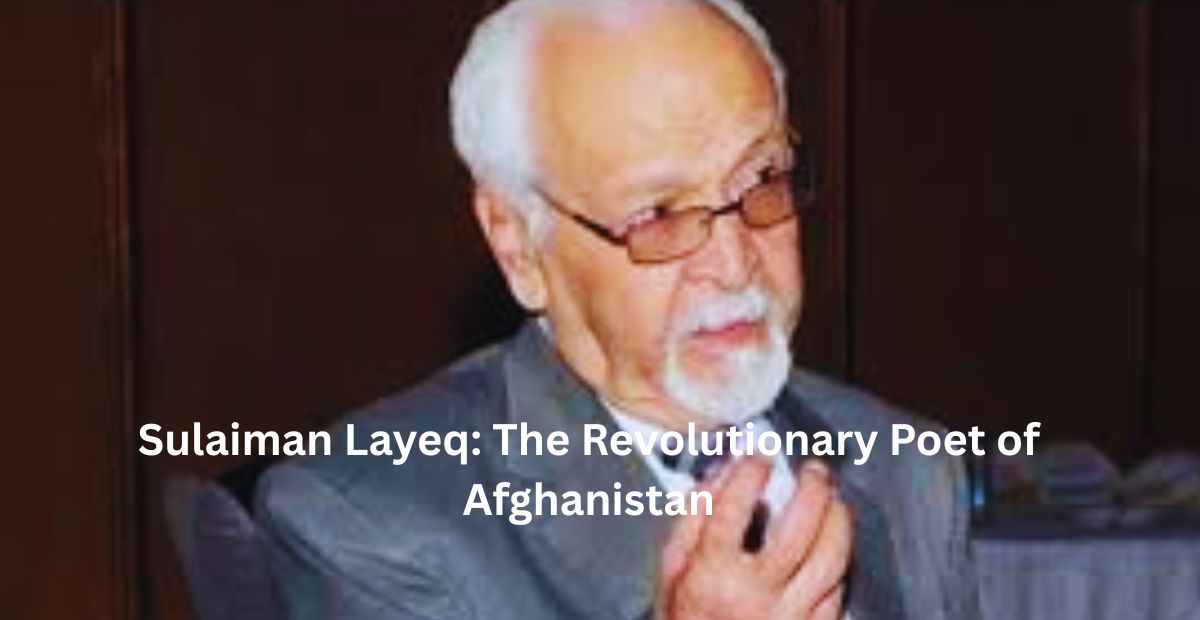Sulaiman Layeq (born Ghulam Mujaddid, October 12, 1930 – July 31, 2020) was more than just a politician — he was a poet, an ideologue, and a key figure in Afghanistan’s turbulent history. From his early struggles as a student protester to his rise as a senior member of the People’s Democratic Party of Afghanistan (PDPA), Layeq’s life story reflects the complex political landscape of modern Afghanistan.
Early Life and Education
Born into a respected Pashtun family of the Sulaimankhel tribe in Sharana, Layeq was originally named Ghulam Mujaddid by his father, Abdul Ghani — a devout Naqshbandi Sufi and anti-British resistance figure. In 1935, his father became the personal imam to Prime Minister Mohammad Hashim, which allowed young Ghulam access to elite education.
Layeq’s early education included prestigious institutions like Habibia High School and a state-run madrasa in Paghman, where he adopted the name Sulaiman, fulfilling his late mother’s wish. Later, he took on the surname Layeq — a nod to his ancestry.
From Student Protester to Revolutionary Voice
Layeq’s political journey began with student protests against abuse at the madrasa. Expelled and later readmitted, he eventually enrolled in Kabul University, initially in Sharia studies per his father’s wishes. However, due to his involvement in anti-government protests, he was expelled once again, only to return and graduate with a degree in literature and philosophy in 1957.
His journalistic career at Hewad Daily and Radio Afghanistan exposed him to Afghanistan’s shifting political ideologies. It was during this time he met Mir Akbar Khyber, a future political ally, setting the stage for his role in founding the PDPA in 1965.
Rise Within the PDPA and Political Struggles
Though not an original central committee member, Layeq became an alternate in 1966. As the PDPA split into the Parcham and Khalq factions in 1967, Layeq sided with Parcham. His 1965 and 1969 parliamentary campaigns were unsuccessful, hindered by Islamist opposition labeling him an apostate — a campaign allegedly linked to Gulbuddin Hekmatyar’s early Islamist group.
Layeq’s family ties connected him to both progressive leftists and conservative Islamists. His sisters married key figures such as Sibghatullah Mojaddedi (future Afghan President) and Mir Akbar Khyber, symbolizing Layeq’s unique position in Afghanistan’s political-religious spectrum.
The Saur Revolution and Government Roles
The 1978 assassination of Mir Akbar Khyber triggered mass protests and the Saur Revolution, leading to the overthrow of President Daoud Khan and the rise of the PDPA. Layeq was freed from jail and appointed Minister for Radio and Television, later contributing to the creation of the national anthem of the Democratic Republic of Afghanistan.
However, factional rifts between Khalqists and Parchamites led to Layeq’s imprisonment in Pul-e-Charkhi prison, sentenced to death in 1979. He survived and was released following the Soviet intervention and the assassination of Hafizullah Amin during Operation Storm-333.
Influence in the Karmal and Najibullah Administrations
Under Babrak Karmal, Layeq returned to government and was appointed Chair of the Academy of Sciences. From 1981 to 1989, he served as Minister of Tribal and Border Affairs, playing a pivotal role in tribal diplomacy and reconciliation efforts with the Mujahedeen.
His deep ties with Pashtun tribes and nationalist groups in Pakistan made him invaluable to President Mohammad Najibullah’s peace efforts. He was elevated to a full Politburo member in 1986 and later became a deputy leader of the rebranded Watan Party, as the PDPA distanced itself from communism.
Peace Missions and Legacy
Layeq participated in multiple international peace negotiations, including meetings in Baghdad, Tripoli, and the United States, though most ended without a formal agreement. Despite political failures, his efforts reflected his belief in diplomacy over conflict.
He passed away in Germany on July 31, 2020, at the age of 90. His body was returned to Afghanistan with military honors, and according to reports, he left behind 70 volumes of unpublished political diaries — a treasure trove for future historians.
Literary Contributions
In addition to his political career, Layeq was a celebrated Pashto poet and author. Some of his notable works include:
- Chunghar (چونغر)
- De Abaseen Spaiday (د اباسين سپېدې)
- Kaygday (کېږدۍ)
- Qeesay Aw Afsanay (قصې او افسانې)
His poetry often intertwined themes of nationalism, identity, and revolution, cementing his legacy as a “rebel poet” of Afghanistan.
Final Thoughts
Sulaiman Layeq’s life is a microcosm of Afghanistan’s 20th-century political evolution — torn between ideology and identity, revolution and reconciliation. As a poet, political strategist, and negotiator, he left a legacy that continues to influence Afghan intellectual and political circles today.
